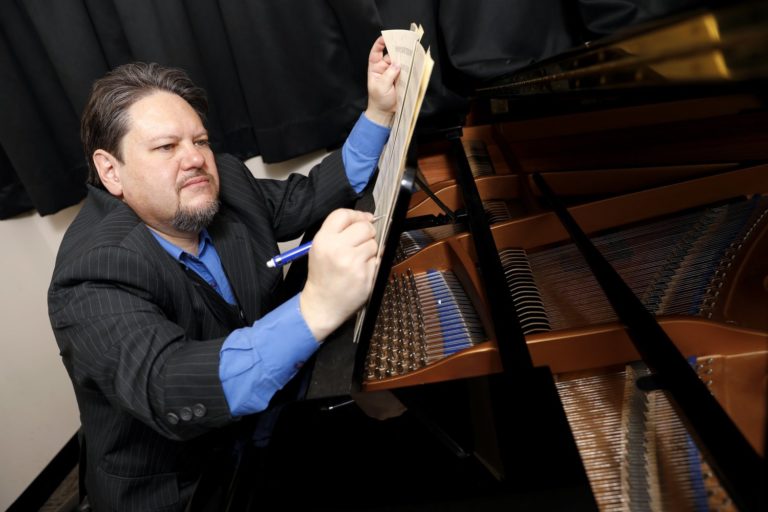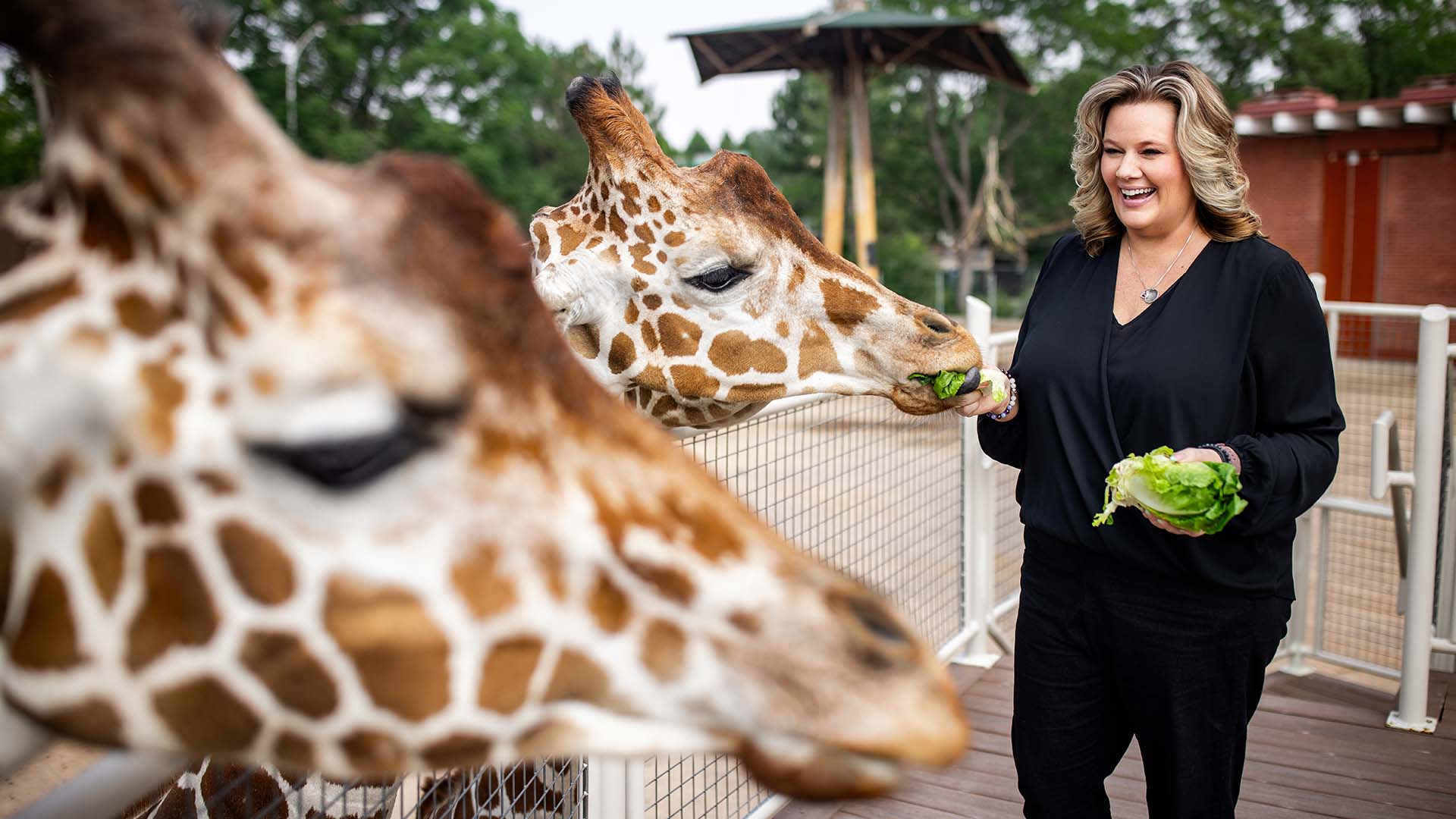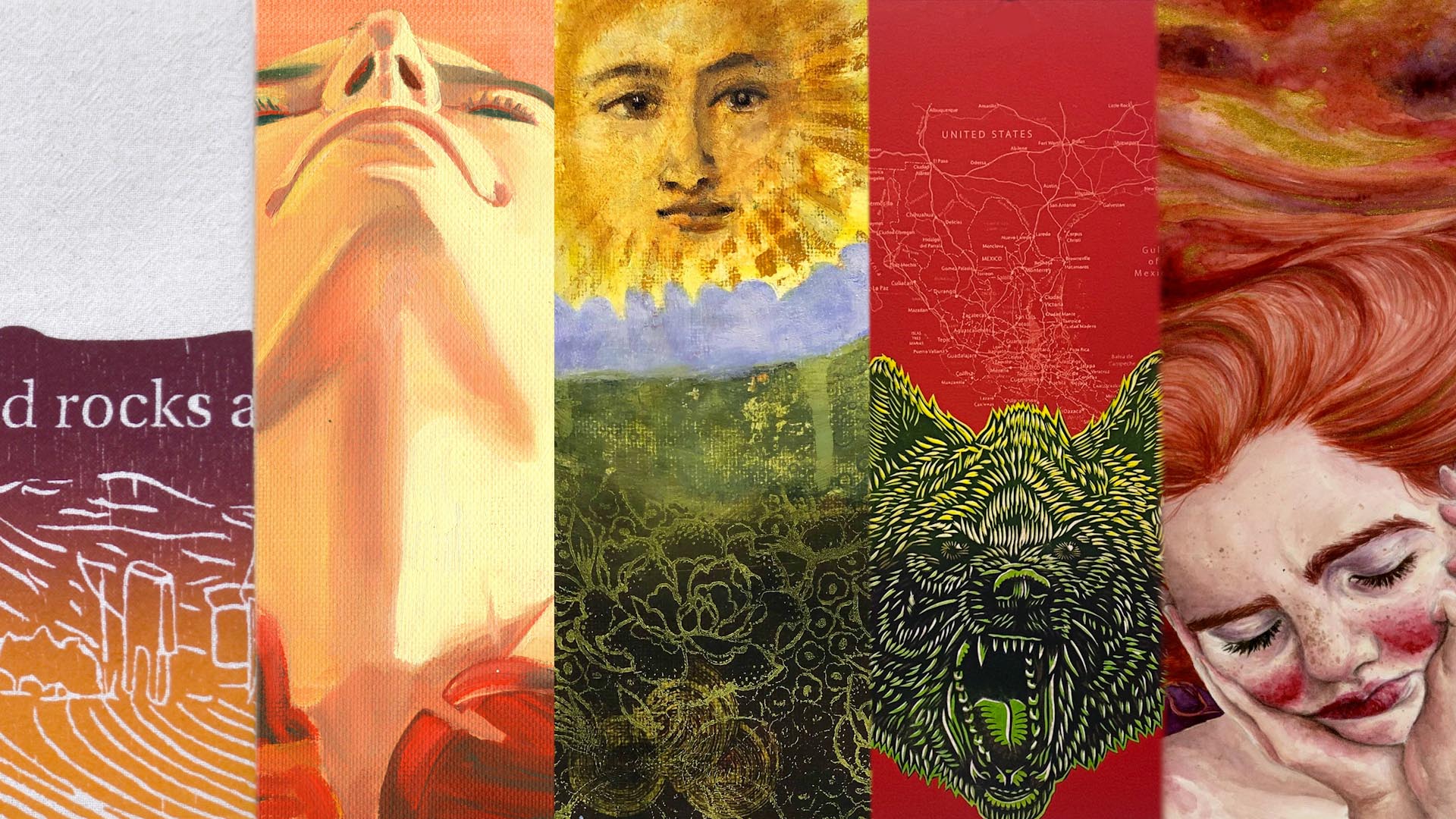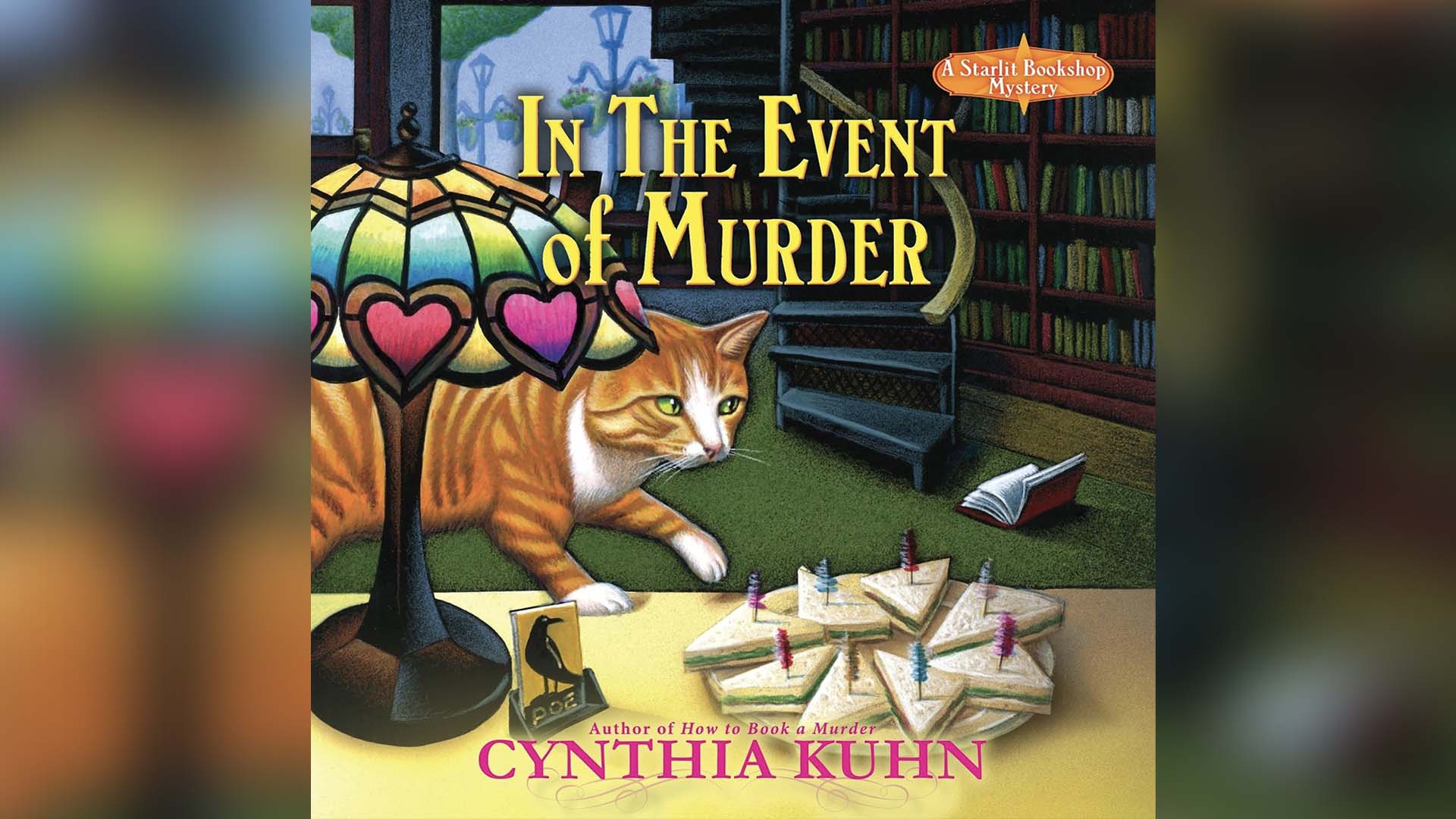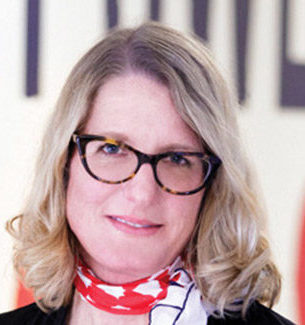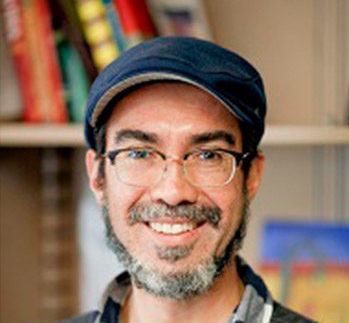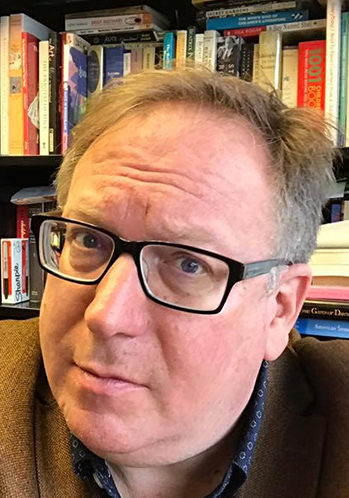Give his regards to MSU Denver
From Broadway and Sondheim to receiving his diploma, this graduate is crossing stages to great acclaim.
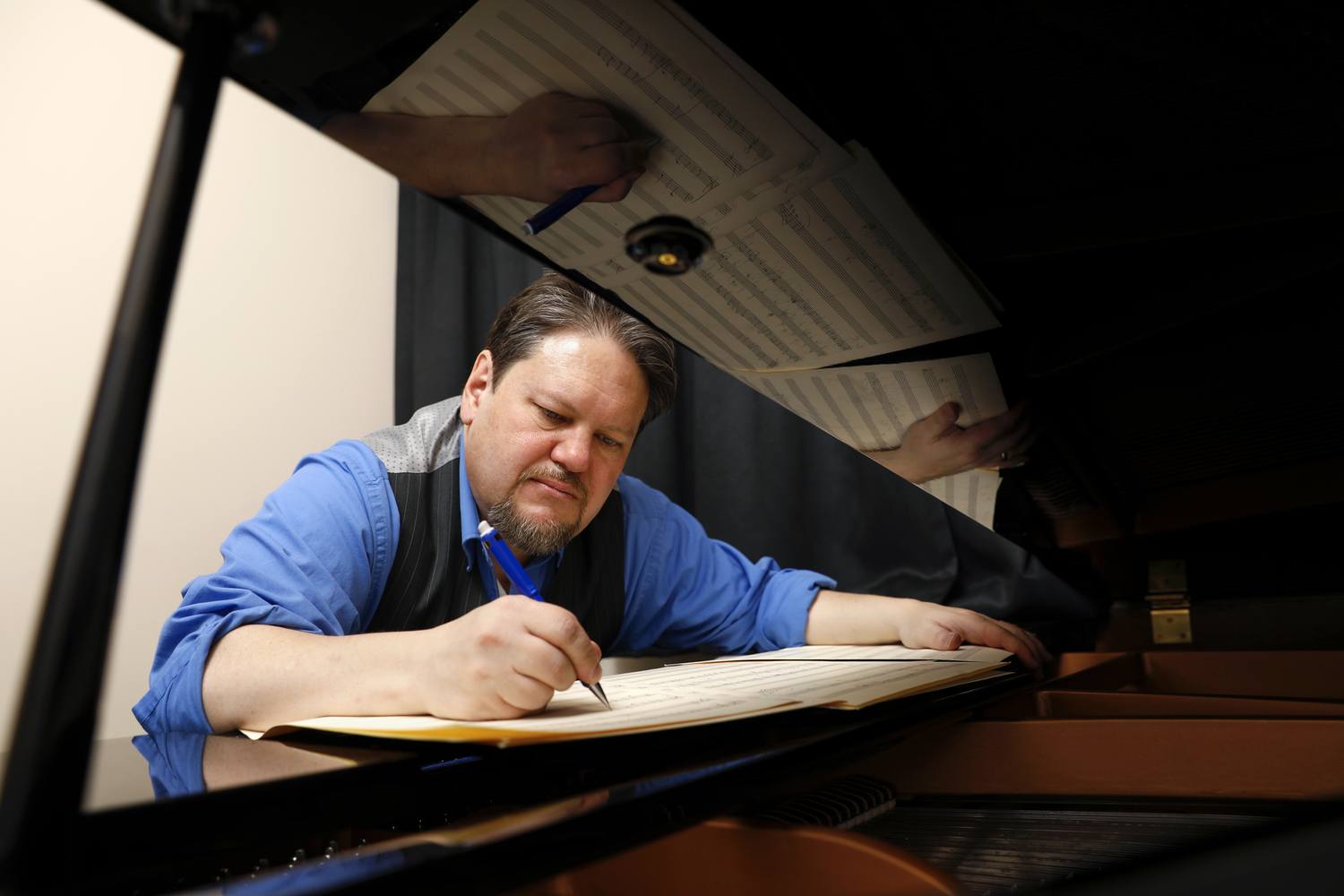
Ernest Ebell has crafted a winning score by combining experience with education, two things that go together like music and theater.
He’d know a thing or two about those, too. Before entering MSU Denver, the composition major and musical theatre minor worked as a music copyist under the glittering lights of Broadway in New York City.
Ebell had a first look at Stephen Sondheim’s draft lyrics, fresh from a fax machine, and saw his own music performed onstage at Lincoln Center. And while visiting Ruth Ellington, the sister of legendary American composer, pianist, and bandleader Duke Ellington, he held transcriptions of her brother’s music in his hands.
But Broadway, as many industries do, began to change – and with it, the copyist’s role.
“Orchestras are smaller [now], so there are fewer parts to write,” Ebell said. “Music is often composed electronically and software extracts the parts for each instrument.”
So, for his next act, Ebell chose to run his own road – right into a transformative education at MSU Denver.
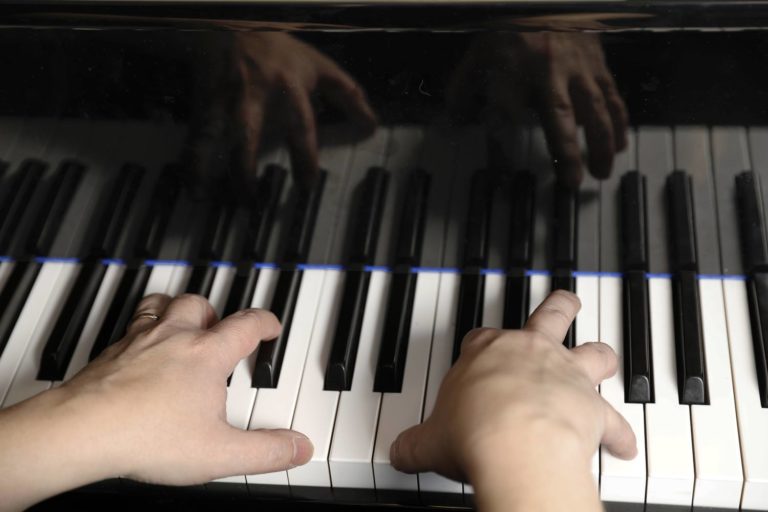
Today, Ebell has a much broader range of musical interests than he had four years ago, crediting his study with a few of the University’s top music professors—Fred Hess, Leanna Kirchoff and Cherise Leiter for composition and Grammy winner R. J. Miller for orchestration.
The summa cum laude graduate is also the recipient of an ensemble of awards, including the Max DiJulio Prize for Composition, the Christopher Priolo Endowed Scholarship for Music Composition and the L. Quinn-Rudolph Award for Music and Scholarship.
It’s this comprehensive instruction, including general education classes such as the physics of sound, that Ebell credits for setting a successful arrangement on an already accomplished stage.
“When I decided to go to school I realized there was a lot I didn’t know,” he said. “I knew what a fugue was, but I didn’t know how to write one. I had heard funny things done with woodwinds, but I didn’t know what to call them. But at MSU Denver, I also learned that there were things that I didn’t know I didn’t know.
“School broadened my ears into sonorities I would never have written—nor would I have cared to.”
Case in point was the piece—Eu Son Alianor (I Am Eleanor)—that Ebell prepared for his final-semester composition department reading. Having gained a great appreciation for music history and an acquired ear for richer and more complex harmonic languages, Ebell set an 800-year-old text to original music.
And it came to a crescendo earlier this month, when was performed by the Playground Ensemble on campus at the King Center.
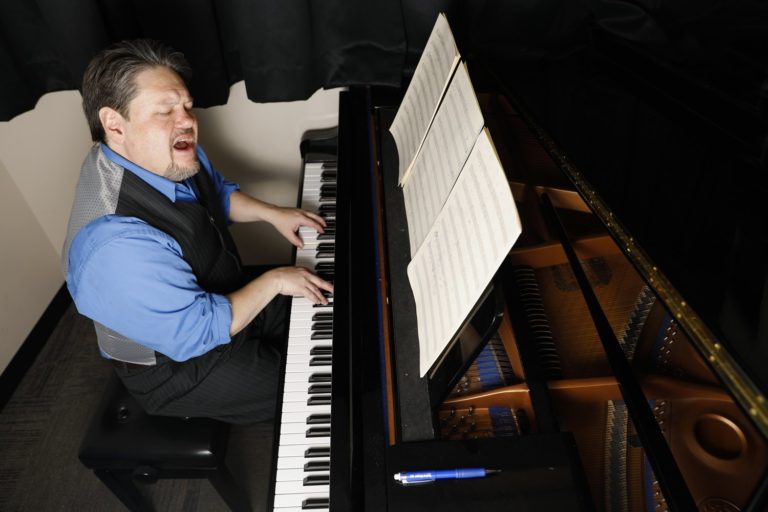
Though it doesn’t span centuries, Ebell’s personal music history also goes far back. At age 7, he was writing songs. At 11, he briefly took up the violin and at 17 he had his first professional acting gig. In his twenties, he moved to New York, where, among other jobs, he worked at King Brand Music.
There, he said, he sold “everything a music copyist would need—giant sheets of manuscript paper with staves on them, ink and pens.”
He learned the copyist trade, working in a room with about a dozen other professionals and lots of cigarettes and coffee, for several weeks at a time. Today, Ebell said, it takes far fewer copyists to do the job.
“It’s a double-edged sword,” he said. “Compositions look cleaner and there are fewer mistakes, but the computer pushes the composer to write in ways that are easiest for the computer. It wants you to follow certain rules.”
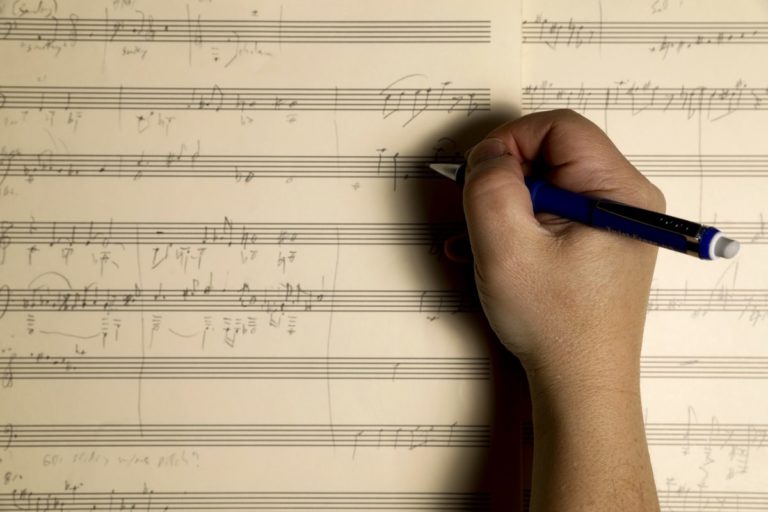
But, as Ebell learned from professor Fred Hess, art is about knowing the rules – and, equally as important, when to break them.
After graduating, he plans to stay in Denver and pursue a career in composition. He is especially drawn to chamber opera, which involves fewer performers and a small orchestra. He hopes to continue volunteering with the Creating Original Operas program at Charles Semper Elementary School, where his wife, who plays the French horn with the Arapahoe Philharmonic, is a music teacher.
Whatever Ebell does, he says he will “write without restraint.” He may not scribe everything by hand, but he will begin at the piano with a pencil and blank manuscript.
“My writing will draw upon both my more conventional musical theatre background and the new tastes and tools I have gained here at MSU Denver,” Ebell said.
